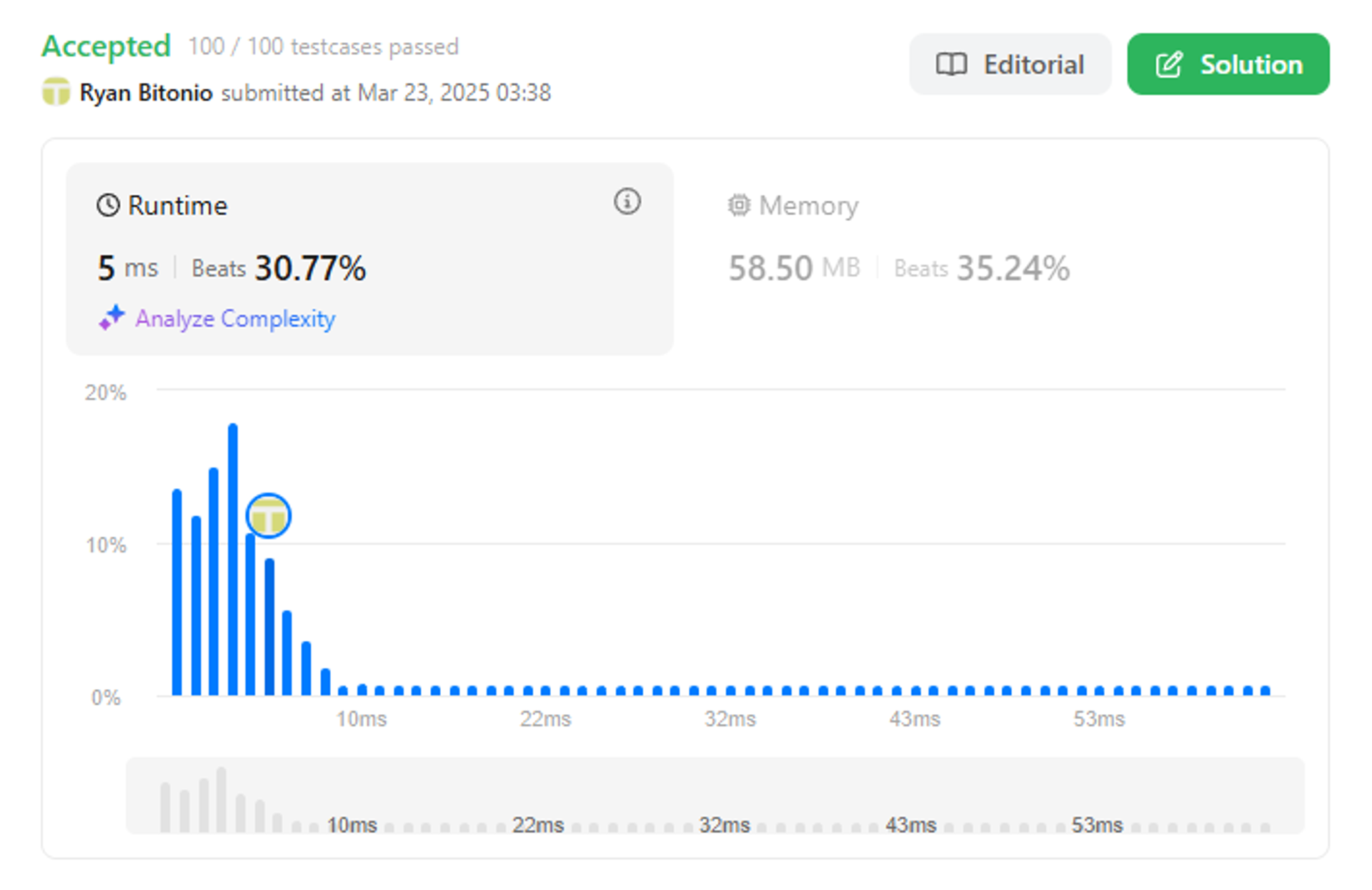Problem Statement
Given a string s containing just the characters '(', ')', '{', '}', '[' and ']', determine if the input string is valid.
An input string is valid if:
- Open brackets must be closed by the same type of brackets.
- Open brackets must be closed in the correct order.
- Every close bracket has a corresponding open bracket of the same type.
Understanding the Problem
The goal is to check if a string made up of {}, [], and () is valid—meaning every opening bracket has a matching closing bracket in the correct order. For example:
Valid: "()[]{}", "{[()]}"
Invalid: "(]", "([)]"
Solution Approach
Instead of using a stack, this solution maps each bracket to its index in the string "{}[]()", so:
'{' → 0, '}' → 1
'[' → 2, ']' → 3
'(' → 4, ')' → 5
Valid pairs are those where b - a === 1 && a % 2 === 0. The algorithm:
- Converts the input into an array of these indexes.
- Iterates through the array, removing valid adjacent pairs.
- Steps back if a pair was removed to catch new adjacents.
- Returns
trueif the array is empty at the end.
Code Implementation
var isValid = function(s : string) : boolean {
const pattern = "{}[]()";
let arr : number[] = [];
for (let i = 0; i < s.length; i++) {
arr.push(pattern.indexOf(s[i]));
}
const isPair = (a : number, b : number) : boolean = > {
return b - a == = 1 && a % 2 == = 0;
};
for (let i = 0; i < arr.length;) {
if (i + 1 < arr.length && isPair(arr[i], arr[i + 1])) {
arr.splice(i, 2);
if (i > 0) i--;
} else {
i++;
}
}
return arr.length == = 0;
};
Time and Space Complexity
O(N)
Testing

Takeaways
Everyone solves problems in their own way. Most people use a stack for this kind of thing, but this approach shows there's always another way to look at it. As long as it works and makes sense to you, it’s a valid solution.
But in a professional setting, of course, you’ll still need to optimize and choose the most efficient and maintainable approach when it really matters.